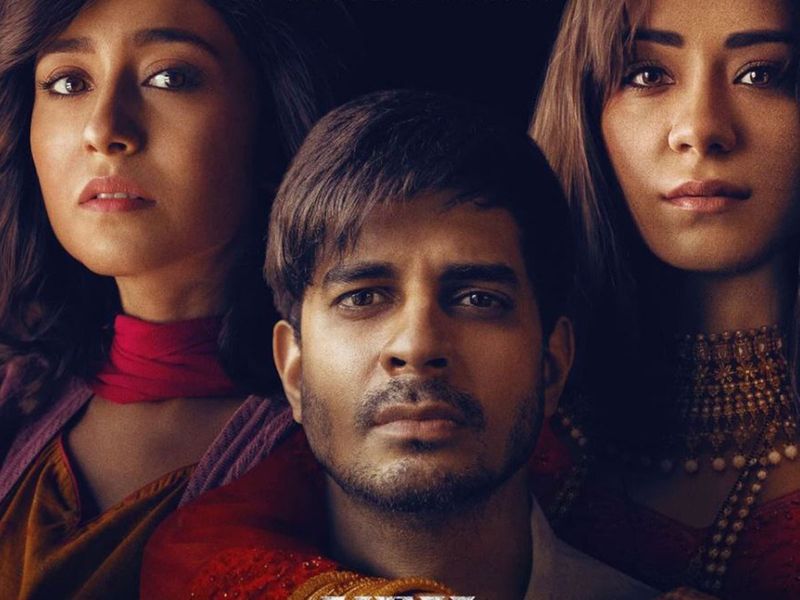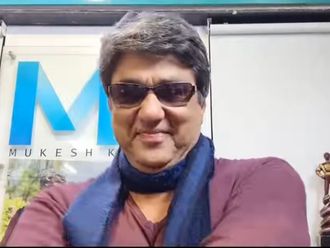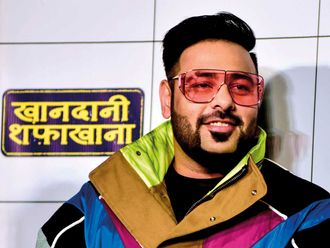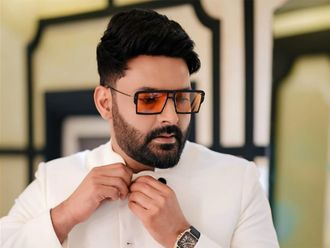Dubai: Bollywood is often perceived as a clannish industry where it’s difficult to break into without connections.
Yet, 24-year-old Saloni Sakhardande, who grew up in Sharjah and studied at Our Own English High School, is proving that talent and passion can help you get a foothold in India’s glossy yet brutal film industry.
A graduate of director Subhash Ghai’s Whistling Woods International in Mumbai, Saloni got that proverbial break when she was asked to assist the cinematographer working on the hit Netflix series Yeh Kaali Kaali Aankhen.
“Growing up in Sharjah, my world was mostly home and school,” said Saloni in an interview over Zoom with Gulf News.
“The city has shaped me in ways I can only appreciate now. My parents were always supportive, even when I chose to pursue the arts instead of science, which was the norm for academically inclined students.”
This encouragement gave Saloni the confidence to move to Mumbai at 18 to study filmmaking. Interestingly, adapting to life in Mumbai – the epicenter of the Hindi film industry – wasn’t as challenging as Saloni had anticipated.
“Coming from the UAE, which is also a bustling metropolis, I found similarities that eased the transition. Mumbai felt welcoming, but it’s a different beast altogether compared to the calmer pace of Sharjah ... The fact that I moved to Mumbai young and that helped,” she remarked.
Saloni’s most significant project to date is her role as the second assistant to cinematographer Murali Krishna on Yeh Kaali Kaali Aankhen.

“This was my first OTT release in my career, and everything else before this had been independent projects for festivals. It was a game-changer,” she said.
Working on a large-scale production brought its own challenges. The Netflix show was a thriller that was shot extensively in cold regions like Manali in North India.
“The action sequences were particularly demanding… Coordinating between the director, stunt doubles, and other departments required seamless communication. But having a clear vision from the director and cinematographer made it manageable.”
As an assistant to the principal cinematographer, Saloni’s responsibilities range from logistical coordination to creative input.
“My job is to ensure that the cinematographer can focus on the creative aspects without worrying about logistics… From ensuring the right lenses are on set to managing camera reports, I handle everything to make the process smoother. When your HOD trusts you, they start involving you in creative decisions, which is incredibly fulfilling.”
The challenges of breaking into Bollywood
Unlike many in Bollywood, Saloni does not come from a film family.
“My parents had their apprehensions about sending me to Bollywood. They were worried about the exploitative nature of the industry, but they supported me by investing in my education,” she said. As if almost on cue, her parents and her doting grandmother joined the interview to say a quick hello. Saloni believes that being armed with a technical degree in filmmaking helped her kick-start her career in Indian films.
Saloni’s first big break came through Whistling Woods’ alumni network.
“Murali Krishna, the cinematographer of Yeh Kaali Kaali Aankhen, is also from my film school. That connection helped me get my foot in the door,” she noted.
Women in Film: Progress, but a long way to go
Asked if the representation of women in technical roles remains an area of improvement in the industry, Saloni was pragmatic.
“When I was studying filmmaking, out of 150 students in my batch, only 25 were women,” Saloni revealed.
“On set, while the number of women has grown over the years, there’s still a need for more. Creating a safe and equitable working environment is a work in progress.”
Saloni credited her production team for their efforts to ensure safety and comfort.
“We shot in remote locations like Manali, but the production was accommodating. They provided facilities like mobile washrooms, which are not always guaranteed on sets,” she said. “However, there’s still room for improvement. Women shouldn’t have to face substandard conditions to prove their dedication.”
Looking ahead
While Saloni is content in her current role, she has her sights set on becoming a director of photography (DOP) one day.
“Film school teaches you the creative and technical aspects of cinematography, but you only learn execution on the job. Every project is an opportunity to build experience and credibility,” she said. Saloni’s advice to aspiring filmmakers from Sharjah and the UAE is simple.
“If you’re serious about it, spend time on a set. Experience the reality of filmmaking instead of relying on secondhand accounts. It’s the best way to understand if this is the right path for you.”











